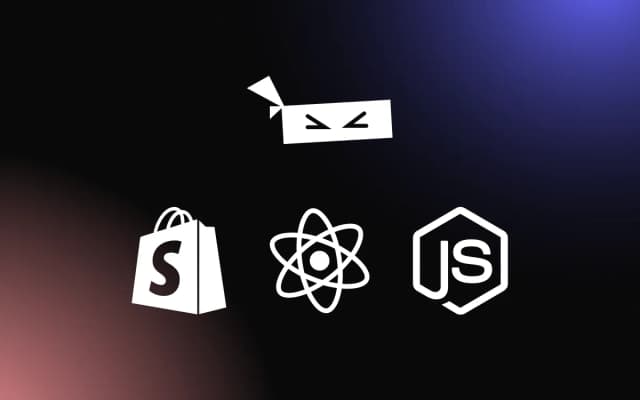![Choosing the Right E-Commerce Platform To Develop an App For [Guide]](https://website-assets.commoninja.com/distribution/1737982322112_Choosing_the_Right_E-Commerce_Platform_To_Develop_an_App_For_[Guide].webp)
Throughout the past several years, web development has become one of the most sought-after technology-based skills. Many web developers choose to work on a freelance basis, especially now when working from home is more popular and necessary than ever.
Many web developers choose to host their apps, plugins, or extensions on the marketplaces for different e-commerce platforms. This immediately gives them a substantial audience to get their apps in front of, all but ensuring numerous downloads every month.
However, with so many e-commerce solutions available today, it can be difficult to find the platform that will work best for you and your products. There are many factors to take into consideration, and researching every available platform is often time-consuming and tedious.
That’s why we’ve compiled a list of everything you should consider when deciding which marketplace you’ll sell your apps and plugins on. Don’t get bogged down on the details — focus on the few things that really matter. Keep reading to learn what information you should be looking into, as well as some of the best e-commerce platforms for developing apps, plugins, widgets and more!
Once You Choose a Platform, Discover How To Optimize Your App’s Listing
Things To Consider When Choosing an E-Commerce Platform
Before you decide which platform you want to develop apps, plugins, or extensions for, it’s good to look at all your options and compare a few important factors. Some of the important things you’ll want to make sure you look at include:
- Price/cost (opening an account, transaction fees, revenue share)
- Developer support available
- Development language and framework knowledge requirements
- Number of users (stores and active users) on the platform
- Any additional requirements or restrictions for developers
- Marketplace size and monthly downloads
- Additional services and tools for developers
Let’s discuss what each of these factors involve, as well as what you should be looking for.
Price/Cost
Money is king in almost all situations, and web development is no different. For this reason, make sure to consider factors like:
- Revenue share
- Transaction fees
- Any costs associated with opening a developer account
Ideally, you’ll be looking for a platform that allows you to open a developer account and host your apps for free. However, be sure to take revenue share into account, as well. Your revenue share is the percentage of your sales that goes directly to your pocket. Most platforms give you between 60%-80% of your total sale amount, then take the rest as a fee. In addition to this, some marketplaces charge a separate fee for each transaction.
Since you’re likely to make a sale more often than you have to pay a membership fee, it may be worth it to opt for a higher account cost in return for a higher revenue share or fewer transaction fees. It all comes down to personal preference and what you can afford.
Note: Common Ninja’s Developer Platform is absolutely free, and includes everything you need to develop an app including hosting, support, storage, payment processing and more! Be sure to check the full list of Common Ninja’s benefits.
Support
Things can get complicated when you develop an app, plugin, or extension for use on a specific e-commerce platform. For this reason, it’s important that whatever marketplace you choose offers adequate support for developers.
All the resources you need should be easy to access, including information regarding the system’s API. If you cannot easily find developer support topics on the platform, if the site requires payment before you can access them, or if help topics are buried pages-deep, you may want to look elsewhere.
While the available support materials will vary by platform, they should generally include:
- Video tutorials
- Various documents
- Some kind of developer community
Having sufficient support from your chosen platform, as well as from other developers, will help you significantly among your development journey.
Development Language/Framework Knowledge Requirements
Different platforms work with different development languages and frameworks. If you find an e-commerce platform that you want to start developing apps for, make sure you’re familiar with their programming languages before signing up.
This information can generally be found in the API documents or other developer resource pages. Some of the most popular languages across e-commerce platforms include:
- JavaScript
- Python
- #C
- Java
Make a list of the development languages and frameworks you’re currently familiar with, and look for platforms that use them. If you’re particularly dedicated to a certain platform, you may even want to consider learning a new language!
Number of Platform Users
When you develop an app, you want to be sure you can get it in front of enough people to maximize your sales. For this reason, it’s important to ensure that there is a sufficient number of users on the platform you choose.
Make sure to not only look at the number of active users on a platform, but the number of sites they host, as well. More websites mean more opportunities for webmasters to purchase and install your apps, plugins, or extensions.
Other Requirements or Restrictions
Before you choose a platform, it’s important to find out what (if any) restrictions or requirements you will have to adhere to while developing for them. Some platforms don’t allow certain types of apps and extensions, while others will require a specific user interface or experience.
Always read any developer documents or agreements completely and thoroughly before you commit to developing on a certain marketplace. If they impose any restrictions or requirements that your apps do not align with, move on to the next platform.
Marketplace and Monthly Downloads
The size of a platform’s app marketplace is of utmost importance. The more apps there are available, the more competition you will typically have. Consider how many apps there are altogether, how many of those are similar to yours, and the marketplace’s average number of monthly downloads.
A high number of overall apps indicates that the platform is reliable, fair, and secure. However, you don’t want to add your apps or extensions to an already saturated marketplace! Look up keywords related to your apps and plugins, and see if you’ll have any direct competition on the platform. The fewer apps that are competing with yours, the better.
If possible, finding out the average number of monthly downloads on a marketplace can be helpful, as well. Make sure this number is high enough to make you feel confident in your app’s ability to turn a profit.
Additional Services
While not completely necessary, it’s always better to work on a platform that offers additional services, such as marketing and promotion support, for their developers. Some platforms will show different apps and extensions on their “Featured” page daily, weekly, or monthly, which all but guarantees additional downloads for you.
Some marketplaces will also offer you the choice to add a paid promotion to your apps. The fees to do so are generally low, and these promotions are often effective in getting you additional downloads.
Tools
The final thing you should look for when browsing e-commerce platforms is any tools that improve the app-building process. Does that platform let you open a “sandbox account” for testing purposes? Do they offer community forums and events for their developers?
It’s best to develop for a website that has a dedicated Developer Center. These pages are typically full of resources and tools to help you and other developers create the best, most responsive apps and extensions possible. Having tools like these available not only shows that the platform respects you as a developer, but it also shows their commitment to hosting the best-possible extensions.
The Best E-Commerce Platforms for Web Developers
All of the information listed above may seem overwhelming. There are a ton of e-commerce platforms out there, and digging through the developer resources to find important information can be incredibly time-consuming. That’s why we’ve compiled a list of the best e-commerce platforms for web developers!
Below, we’ll highlight some of the most popular e-commerce platforms. Keep reading to find all the information you need before you start developing for the following marketplaces:
- Shopify
- WooCommerce
- BigCommerce
- Wix
- Shift4Shop
- Weebly
- Squarespace
- Adobe Commerce
- Ecwid
Shopify
According to Statista, Shopify controls nearly 4% of the entire e-commerce market share. With millions of users across the globe, it’s regarded as one of the best places to host your apps and plugins.
- Price/Cost: You receive 80% of your total revenue with a free account. With a Partner account (one-time fee of $99 for accounts created after August 1st, 2021), you’ll pay 0% revenue share on your first $1 million in sales per year, and 85% of revenue from any additional sales during the same year.
- Development Language(s): Shopify porivdes official libraries for Ruby and Python, but it also supports libraries for other languages like Node and PHP.
- Platform Users: 2.1 million active daily users and 1.75 million stores across 175 countries.
- Annual Platform Revenue: $4.6 million in 2021.
- Average App Price: $14.77
- Support documents: Available on Shopify.dev.
- Community: Developer forums, Discord server, Facebook group, Partner blog, and Partner community events.
WooCommerce
WooCommerce runs through WordPress and powers online stores throughout the world. It controls about 23.5% of the e-commerce market, making it one of the most popular e-commerce platforms out there.
- Price/Cost: Free to sign-up. Developers earn 70% net revenue from their extensions sales, while the rest goes to WooCommerce to cover various fees.
- Development Language(s): PHP 5.6 and above.
- Platform Users: 3.9 million total stores.
- Annual Platform Revenue: $6.1 million per year.
- Number of Overall Apps: Approximately 800.
- Support Documents: Available on WooCommerce website, development blog, and WordPress.
- Community: Developer Slack channel and development blog.
BigCommerce
BigCommerce is a highly-trusted e-commerce solution, known for its reliability and continuous improvement. With the BigCommerce App, you can enhance your online store's functionality, powering some of the most successful shops with advanced features and seamless integration.
- Price/Cost: The cost of signing up and uploading extensions is case-dependent, but it is believed that split is such that 80% of revenue goes to you, 20% goes to BigCommerce.
- Development Language(s): Node, React, Next.js, and BigDesign.
- Platform Users: 150+ stores with over 60,000 active customers.
- Annual Platform Revenue: $220 million as of 2021.
- Number of Overall Apps: 1,100+
- Support Documents: Developer Center
- Community: Developer blog, Developer group, and BigCommerceDevs Slack channel.
Wix
Wix is currently one of the most popular free website builders on the internet, and Statista reports that it controls around 6% of the e-commerce platform market share. Developers can use Velo by Wix to create apps to sell on the Wix App Market.
- Price/Cost: You can sign up for a Wix Developer for free. There’s a 6% processing fee for each transaction, then you’ll keep 70% of your net revenue and other income generated by your app.
- Development Language(s): JavaScript
- Platform Users: Over 200 million users in 190 countries.
- Annual Platform Revenue: $1.27 billion as of 2021.
- Average App Price: Between $10-$100 per month.
- Number of Overall Apps: 250+
- Support Documents: Wix Developer Center
- Community: Velo by Wix forum, blog, and in-person/virtual events.
Shift4Shop
Shift4Shop is a powerful, SEO-based e-commerce solution. Shift4Shop developers can create and sell apps that customize users’ store functions, expand existing features or add new ones, and further address specialized solutions.
- Price/Cost: Free to set up, with a 60% revenue share on all sales. If you use Shift4 Pay to process transactions, you’ll also get a $500 bonus.
- Development Language(s): C#, PHP, Ruby, and Python.
- Platform Users: Over 17,000 merchants and 200,000+ customers.
- Annual Platform Revenue: $767 million as of 2020.
- Support Documents: Support page for developers. Resources, training, and 24/7 technical support are available for Partners.
- Community: Developer forum.
nopCommerce

nopCommerce is a free and fully customizable open-source eCommerce platform that integrates with such services as Amazon, PayPal, FedEx, Stripe, etc. This ASP.NET-based software comes with powerful out-of-the-box features: multi-store & multi-vendor, unlimited product listings, B2B tools, SEO, and GDPR support.
- Price/Cost: Free with the source code available.
- Development Language(s): C#, HTML, CSS, and JavaScript.
- Platform Users: 250,000+
- Number of Overall Apps: 1,500+
- Support Documents:official documentation, training course.
- Community:GitHub, community forum, Facebook, Twitter, LinkedIn.
Weebly
Weebly is one of the most user-friendly website builders, using a simple drag-and-drop model. Weebly is hosted by Square, and according to Wonder, it holds 2% of the e-commerce platform market share.
- Price/Cost: Free to create a developer account. Keep 70% of your revenue on each app sale.
- Development Language(s): PHP and JavaScript.
- Platform Users: 30 million websites, 250 million+ customers per month.
- Annual Platform Revenue: $24 million
- Number of Overall Apps: 350+
- Support Documents: Tutorials and help from the Developer Center.
- Community: Developer forum.
Squarespace
Squarespace is a hosted platform that has become incredibly popular over the past several years, gathering a whopping 23.5% of the e-commerce market share. They give customers everything they need to open a small online store, including access to their extension marketplace.
- Price/Cost: Pricing and revenue shares vary on a case-by-case basis.
- Development Language(s): CSS, HTML, JSON-T, and JavaScript.
- Platform Users: 2.8 million stores and 3.8 million customers.
- Annual Platform Revenue: $780 million as of 2021.
- Number of Overall Apps: Approximately 30.
- Support Documents: Developer FAQ page, Tools & modules, and developer center.
Adobe Commerce
Adobe acquired the e-commerce platform Magento in 2018, and has since made it a part of Adobe Commerce. Adobe Commerce, which controls 9% of the e-commerce market share, allows users to build multi-channel e-commerce stores on a single flexible and scalable platform.
- Price/Cost: Free to sign-up for a Developer account, with 85% revenue share on all sales.
- Development Language(s): PHP, HTML, CSS, and JavaScript.
- Platform Users: 335,000+
- Number of Overall Apps: 1,000+
- Support Documents: Developer support page.
- Community: Tech blog, Adobe Github, Adobe Developer YouTube, Adobe Developer Twitter, and community forum.
Ecwid
Ecwid is a growing SaaS tool that continues to add new features. It holds just .5% of the e-commerce market share, and experts say it’s best for creating additional stores to add to your current online presence, rather than using it as a primary hosting tool.
- Price/Cost: A paid account is needed to access the API and develop with Ecwid, and plans range from $15-$99 per month. Standard revenue share is 70%, paid quarterly.
- Development Language(s): JavaScript and CSS.
- Platform Users: Over 1 million merchants and 22,000 active stores.
- Annual Platform Revenue: $17.8 million
- Support Documents: Developer resource page.
- Community: Developer Slack channel.
Common Ninja — Develop Once, Launch Anywhere!
What if we were to tell you that you can build an app once, and deploy it to all platforms (e-commerce, website builders or page builders)?
It’s super easy with Common Ninja’s Developer Platform. Not only will you get the best tools, support and other services to develop your app, but you will also only have to do it once and Common Ninja will take care of the rest!
Discover the full power that Common Ninja’s Developer Platform offers you.
Find Your Platform and Start Building Amazing Apps!
There are many things to take into account when choosing the platform you’ll sell your apps, plugins, or extensions on. While things like the cost of opening a developer account and revenue shares are important, don’t count things like marketplace size and developer resources out! Make sure to consider everything listed above, then pick the marketplace that will work best for your needs and development skills.



